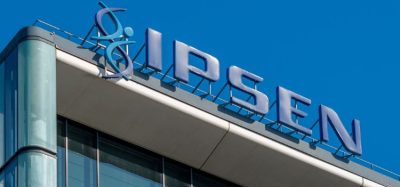NPL launches Metrology for Medical Physics Centre, MEMPHYS
Posted: 23 February 2018 | Steve Bremer (European Pharmaceutical Review) | No comments yet
MEMPHYS will work closely with the NHS, academia and industry to enable the rapid and widespread implementation of a host of new diagnostic and therapeutic technologies.


The National Physical Laboratory, the UK’s National Measurement Institute, has announced the launch of the Metrology for Medical Physics Centre (MEMPHYS), to address the need for early diagnosis and treatment of conditions such as cancer, dementia and heart disease.
In its Industrial Strategy Green Paper and Accelerated Access Review, the UK government has recognised the need to speed up the adoption of innovative new diagnostic tools, treatments and medical technologies, to make the UK home to world-class healthcare. MEMPHYS will help to meet this need, functioning as an international centre for excellence, fostering interdisciplinary and inter-sector research to inspire cutting-edge innovations.
MEMPHYS will work closely with the NHS, academia and industry to enable the rapid and widespread implementation of a host of new diagnostic and therapeutic technologies. It will also act as a launch platform, providing a range of services, including consultancy and advice, commissioning and validation methodologies, and quality assurance protocols and training.
Advanced technologies being developed in the UK that will benefit from the Centre’s support include:
- Advanced radiotherapy delivery systems – the Centre’s collaborative research and expertise will enable more accurate and targeted cancer radiotherapy treatments.
- New imaging technologies – the Centre will help to establish a framework to support medical image decision making, leading to earlier diagnosis and improved treatment of conditions such as cancer, dementia and heart disease.
- Radiotherapeutic drugs – the Centre will pave the way for new radiotherapeutic research and drug trials, which will seek out and target tumour sites – ensuring a more personalised treatment.
- Proton beam therapy (PBT) – the Centre will help to ensure that PBT is delivered to the same level of accuracy as conventional radiotherapy, maximising treatment efficacy and realising the full potential of this more advanced form of radiotherapy.
To underpin this support and ensure the UK continues to lead the world in translating life sciences research into advanced healthcare technologies, NPL will introduce two brand new capabilities through the Centre:
- A Rapid Phantom Prototyping Laboratory – This will focus on producing and optimising the use of medical phantoms. By mimicking the physical characteristics of human and animal tissue, phantoms can provide more consistent results than the use of a living subject or cadaver, and provides an opportunity for the research community to reduce the number of animals used in biomedical studies.
- A clinical SPECT/PET/CT camera – The SPECT/PET/CT camera at NPL is a unique capability and is the only scanner in the world directly calibrated against primary standards of radioactivity, providing clinicians and pharmaceutical developers with confidence in their medical image decision-making and progress of clinical drug trials.
Rebecca Nutbrown, Head of Metrology for Medical physics at NPL, said: “We know that, to enable the rapid and widespread adoption of new innovations into clinical practice, we must first ensure that their performance, safety and effectiveness have been thoroughly measured and optimised. Through MEMPHYS, we will work with our partners to tackle some of the world’s biggest health challenges. From supporting the diagnosis and treatment of diseases, to drug efficacy evaluation, we will undertake research and share our expertise with government, business and the health service, to help enhance healthcare and improve quality of life for patients in the UK, and across the world”
Richard Amos, Associate Professor, Research Lead for Clinical Proton Therapy Physics at University College London, said: “The Centre will be invaluable for realising the full potential of Proton Beam Therapy and maximising treatment efficacy. This need will become critical as more clinics begin to offer this advanced form of radiotherapy.”








